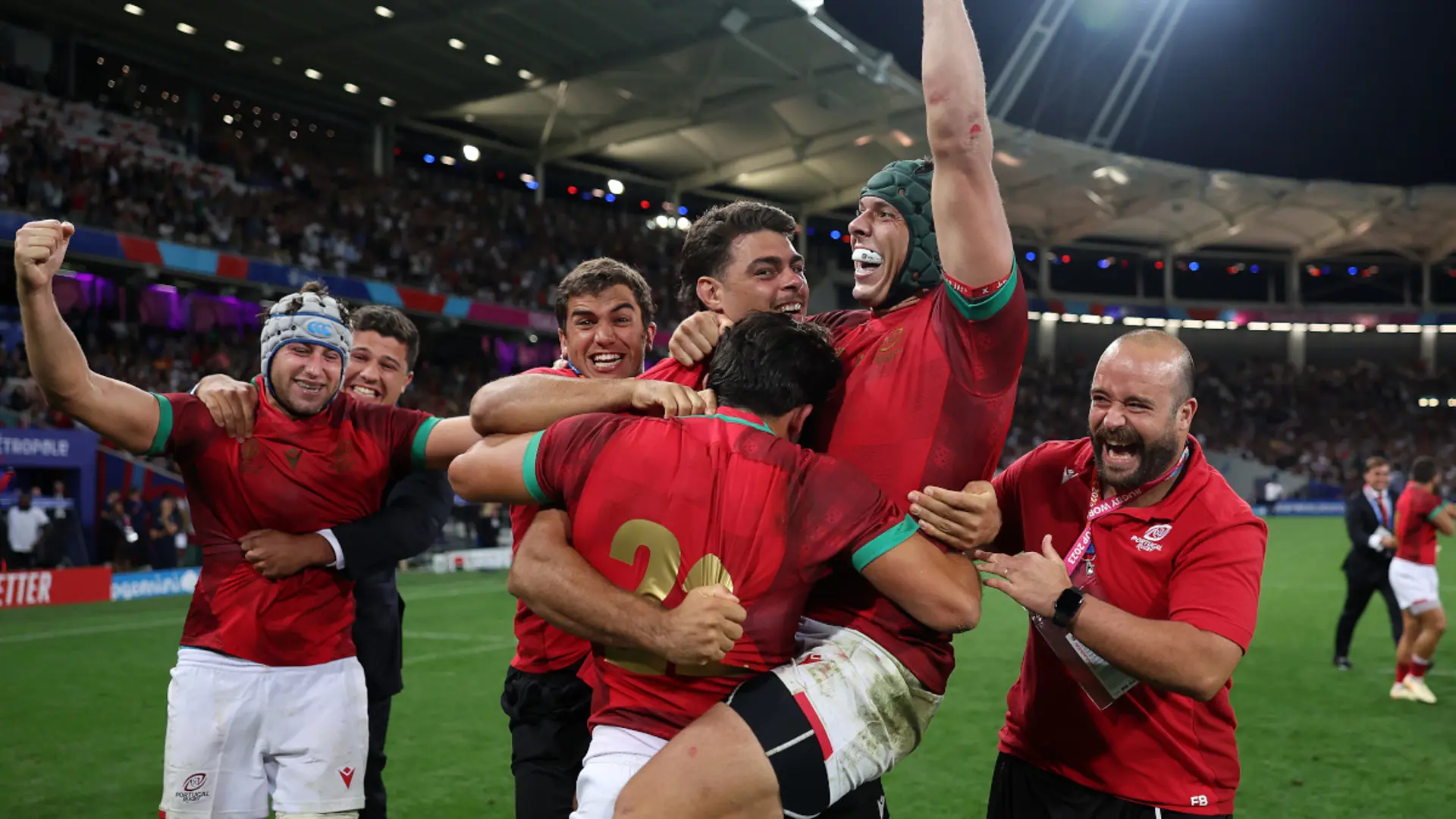Mind the gap! Tier two nations want more and better fixtures

Portugal's sensational last-gasp victory over Fiji for their first World Cup win on Sunday was one of the moments of the tournament but the economic realities of the game mean such upsets are destined to remain a rarity.
For all the delights that Portugal, Uruguay and Chile served up over the pool stage with their expansive rugby, eight usual suspects were safely lodged in the quarterfinal berths come Monday morning.
Closing the gap between the traditional powers and the tier two nations has long been an avowed aim of a game which is strong and healthy in its heartlands but has struggled to expand them.
Portugal, the last team to qualify for this tournament, are the archetype of a tier two rugby nation with their best players at clubs overseas and the rest playing semi-professional rugby at best.
They showed in France what improvements can be made with two months of proper training and decent coaching but the key factor, according to pretty much every tier two nation at the World Cup, is regular fixtures against the elite.
"Uruguay and Chile showed great skills, Pablo Lemoine did a great job with Chile, but everybody knows that in rugby you need to play against high-level teams to flourish," Portugal's French coach Patrice Lagisquet said after the victory.
"But we have to face an economic reality, the top nations cannot afford to play against developing nations two, three, four games in a row, and that's what the developing nations need."
Lemoine made the case more forthrightly after his Chile side, the lowest ranked team at the tournament, were thrashed 71-0 by England.
"When we come here we are part of the show, but we never can play the games because we've never played that kind of game during the cycle between the World Cups," he said.
"I hope that changes because it's not good for the players or for the supporters."
The issue is even starker for the teams from the Pacific islands, who see their best players travel all over the world to play club rugby with the national team getting together for only a few fixtures a year.
Tonga coach Toutai Kefu, a World Cup winner with Australia in 1999, said more and better matches were essential for team development.
"We need to spend more time together, have more preparation time and play more competitive games," he said after Tonga got their first win in their final pool match against Romania on Sunday.
"We play six games a year – maybe one or two a year against tier one nations. Tier one teams play maybe 15. It is hard to compete against well-oiled machines."
"MATCHES OVER RESOURCES"
Fiji, who qualified for the quarterfinals despite Sunday's loss to Portugal, are proof that performances will earn better fixtures, having been hosted by France and England in warm-up matches and arrived at the tournament ranked sixth in the world.
Coach Simon Raiwalui said competitive fixtures were the most important factor in the development of a team.
"I would take more matches over resources," he said after Fiji beat Australia in the pool phase. "You've seen what these boys can do when they get competition."
Raiwalui may get his wish if the proposed elite northern versus southern hemisphere "Nations Championship" gets off the ground from 2026, but it is unlikely to help many other tier two nations.
World Rugby provides financial assistance to all the tier two nations, even if they do not call them that any more, but the top nations decide on their own fixture lists outside major tournaments.
Kieran Crowley, who coached Italy at this World Cup and was previously in charge of tier two Canada for eight years, is convinced more regular fixtures against top nations is the only way the gap will close.
"It's never going to happen because it's all about the crowds," he said after Italy's loss to France.
"You compare England against Ireland at Twickenham to England against Chile, it's not going to get the same sort of crowd. It's the money, the revenue.
"They just need more games but how World Rugby is able to do that, I don't know."
Advertisement
